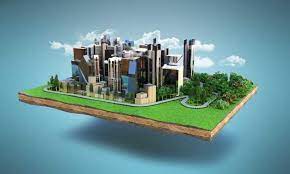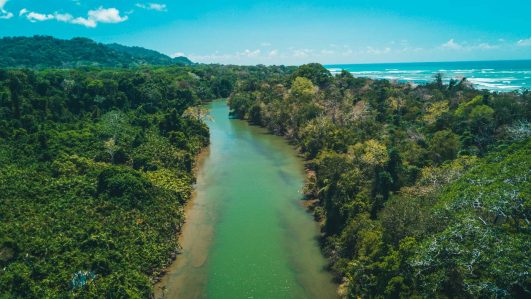Infrastructure development plays a crucial role in shaping the success and growth of the tourism industry. While natural attractions and cultural heritage are important, it is the real estate infrastructure that provides the foundation for a thriving tourism destination. In this blog post, we will explore how strategic real estate development can boost tourism and create a positive impact on visitors and local communities.
Enhancing Accessibility:
One of the key ways real estate infrastructure boosts tourism is by improving accessibility. Well-connected airports, efficient road networks, and reliable public transportation systems make it easier for tourists to reach their desired destinations. Real estate developers can contribute by investing in transport hubs and accommodations located in strategic proximity to transportation nodes.
Creating Quality Accommodation:
The availability of quality accommodation is vital to attract and retain tourists. Real estate developers can play a significant role in this aspect by building and upgrading hotels, resorts, vacation rentals, and other lodging options. Modern amenities, comfortable spaces, and diverse choices cater to the varied preferences and budgets of tourists, providing them with a positive experience during their stay.
Developing Tourism Infrastructure:
Real estate development can support the creation of tourism infrastructure that adds value to a destination. Theme parks, entertainment complexes, convention centers, and sports facilities attract tourists, extend their length of stay, and contribute to increased visitor spending. Real estate developers can partner with local authorities and investors to create these attractions, enhancing the overall tourism ecosystem.
X-raying Dubai as a premier global tourist destination Dubai’s real estate infrastructure has played a pivotal role in boosting tourism. Iconic landmarks, luxury hospitality offerings, extravagant shopping experiences, entertainment and leisure facilities, cultural attractions, and sustainable development practices have all contributed to Dubai’s status as a premier global tourist destination. By continuously investing in innovative real estate developments, Dubai enhances its appeal to both leisure and business travelers, offering a captivating blend of luxury, culture, and entertainment.
Preserving and Showcasing Heritage:
Heritage sites and cultural attractions are magnets for tourists seeking authentic experiences. Real estate developers can contribute to tourism by preserving historic buildings and reviving cultural sites through adaptive reuse. By transforming these structures into visitor centers, museums, or cultural hubs, developers breathe new life into the destination while preserving its heritage.
Creating Recreational Spaces:
Real estate projects that prioritize the development of parks, gardens, waterfront promenades, and recreational areas create inviting spaces for both tourists and locals. These spaces offer opportunities for relaxation, leisure activities, and outdoor events. They become gathering points that enhance the overall visitor experience and contribute to a vibrant tourism destination.
Sustainable Development:
Real estate developers have a responsibility to adopt sustainable practices that preserve the environment and support local communities. Sustainable real estate development contributes to the long-term success of tourism by minimizing the ecological footprint, incorporating green building practices, and promoting responsible tourism. This not only attracts environmentally conscious travelers but also ensures the destination’s sustainability for future generations.
Fostering Economic Growth:
Strategic real estate development in tourism destinations can have a significant economic impact. It stimulates job creation, encourages investment in local businesses, and generates revenue streams for the local community. By revitalizing neighborhoods and creating opportunities for entrepreneurs, real estate developers become catalysts for economic growth, ultimately benefiting both tourists and residents.
Conclusion:
Infrastructure, particularly real estate development, plays a vital role in boosting tourism. By focusing on accessibility, quality accommodation, tourism infrastructure, heritage preservation, recreational spaces, sustainability, and economic growth, real estate developers can contribute to the success of tourism destinations. The synergy between infrastructure and tourism creates memorable experiences for visitors, strengthens local economies, and lays the foundation for sustainable community development.












